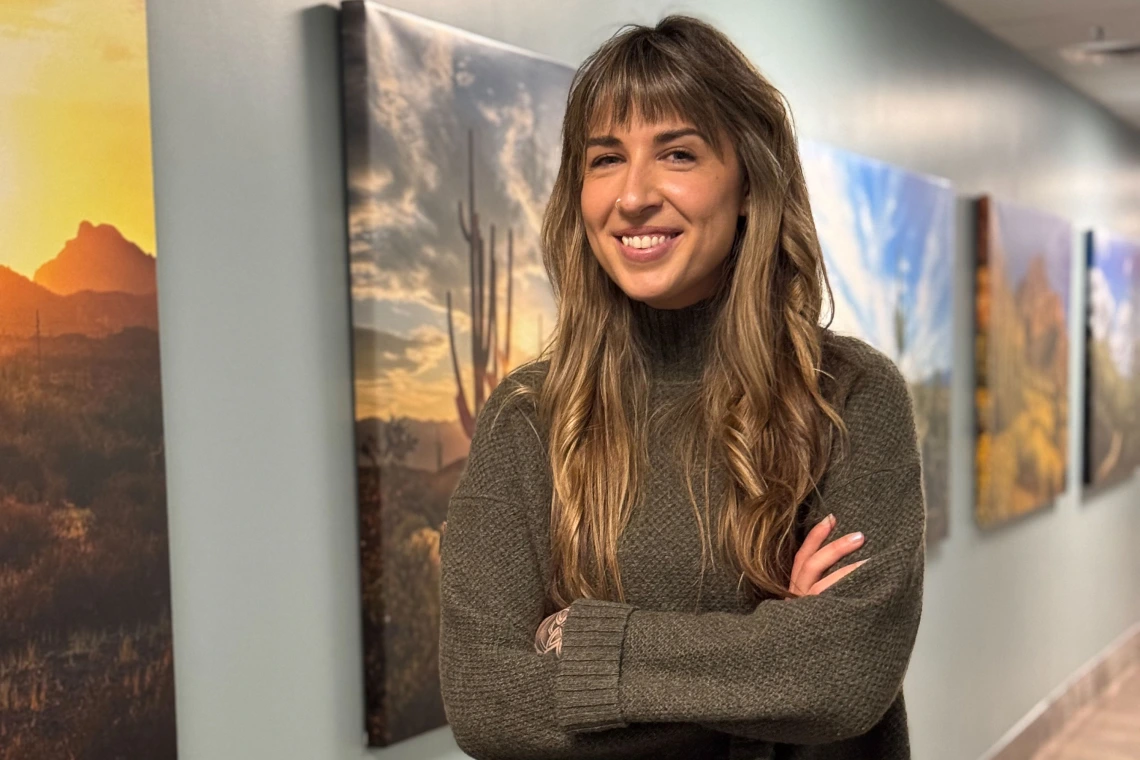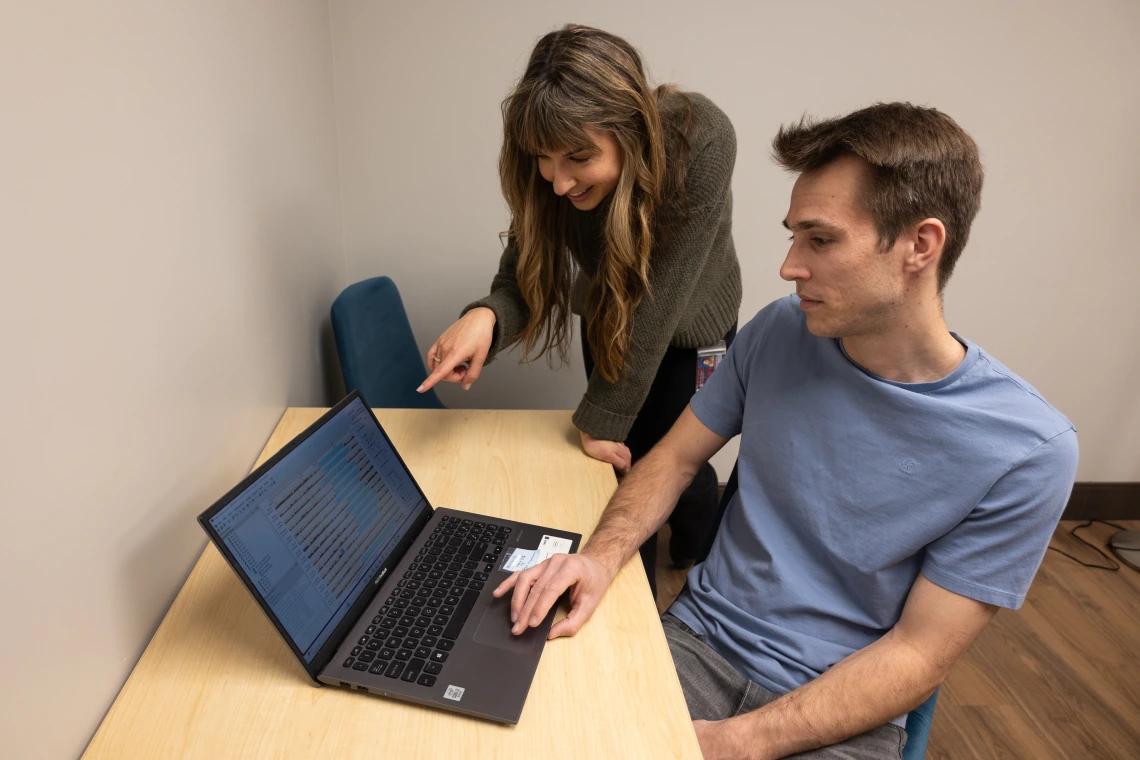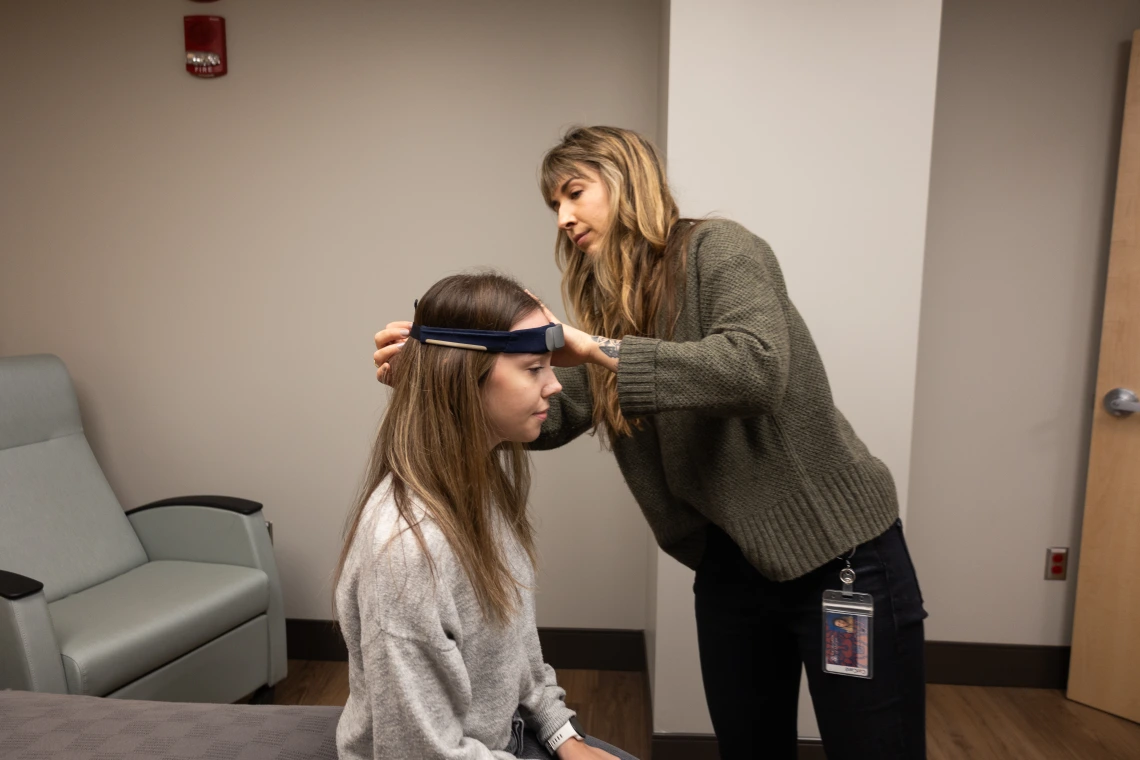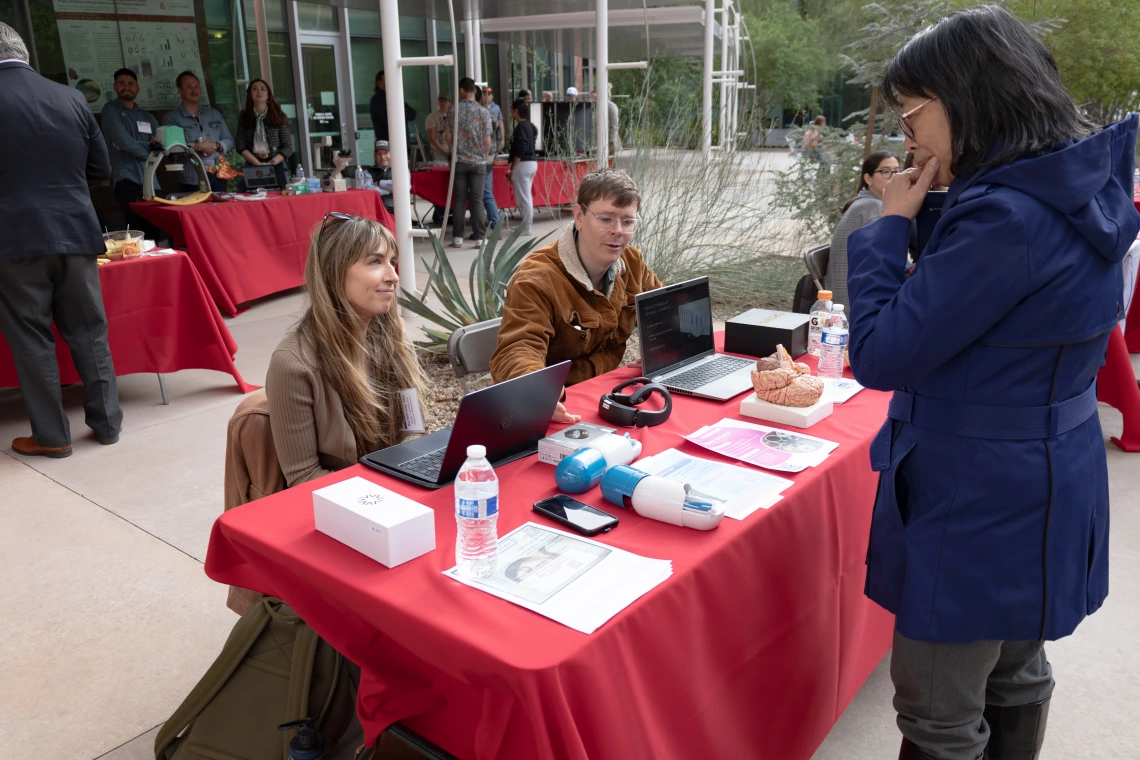Waking up to the interdisciplinary science of sleep
2025 BIO5 Postdoctoral Fellow Kat Kennedy blends an interdisciplinary background to explore how sleep affects health, cognition, and society.

Sleep is something we all experience, yet much about it remains a mystery.
How does sleep impact our health, cognition, and daily lives? And why do some people struggle with it more than others?
These are the kinds of questions that drive Kat Kennedy’s research.
As a 2025 BIO5 Postdoctoral Fellow and postdoctoral researcher with the Social Cognitive and Affective Neuroscience (SCAN) lab in the University of Arizona College of Medicine - Tucson, Kennedy hopes to uncover the factors that shape how we sleep, especially for underrepresented populations in sleep research such as shift workers and women.
With a background spanning microbiology, physiology, and science journalism, she brings a unique perspective to studying the connections between the environment, human health, and sleep—and sharing those insights with the world.
“I’m an advocate for creating environments that remove barriers between scientists and the general public,” said Kennedy. “A lot of people struggle with sleep, and I want to use my scientific expertise to share information and help people.”
Her interdisciplinary background and dedication to science communication and outreach have guided her to the University of Arizona and the BIO5 Institute, where she is building a career in sleep health.
A lifelong curiosity for sleep and science
From a young age, Kennedy was intrigued by the mysteries of sleep.
“I have kept a dream journal for as long as I can remember,” said Kennedy. “I’ve always been fascinated by dreams, and I ended up into sleep research in a roundabout way.”
Kennedy earned a Bachelor of Science in marine biology and coastal ecology from the University of Plymouth in the United Kingdom. Shortly after, she began working as a microbiologist and freelancing as a science writer.
Yet, her fascination with the science of sleep never faded.
“I began thinking about how we spend a third of our lives sleeping, and it felt like a way to connect my different interests, from the environment and human physiology, with sleep being a key indicator of our health.”
After connecting online with renowned sleep researcher and science communicator Michael Grandner at the University of Arizona, she started more seriously considering a move to Tucson to follow her passion.
In 2019, Kennedy made the leap and changed careers, joining the Sleep and Health Research Program in the Department of Psychiatry at the U of A College of Medicine - Tucson as a doctoral student.
“My background helps me understand the interconnectivity of human health and the environment,” said Kennedy. “And sleep is a gauge giving us insight into those connections.”
Finding a research home at BIO5
During her first year as a PhD student, Kennedy discovered the BIO5 Institute and instantly felt at home.
“I love BIO5. I truly believe it’s a home for researchers like me, whose work doesn’t fit neatly into a single discipline,” she said.
With that sentiment, she chose to stay at the University of Arizona as a postdoctoral researcher after completing her doctoral program in 2024. Kennedy now works in the SCAN Lab led by BIO5 member and professor of psychiatry, William “Scott” Killgore.
The SCAN Lab uses wearable technology, neurocognitive assessments, and advanced neuroimaging techniques to understand brain systems involved in emotional processes and cognitive performance. Killgore and his lab are especially focused on military personnel and combat veterans because the nature of their profession can cause disruptions to their sleep cycles.

Kat Kennedy and her lab rely on cutting-edge technology to collect data because traditional lab-based sleep studies don’t always capture the full picture.
Kennedy is also interested in studying individuals who experience "sleep and circadian misalignment," including shift workers, caregivers, and people with sleep disorders. These groups often face negative health consequences due to their inability to get sufficient sleep.
And within those groups, even less is known about women.
“I am specifically interested in women’s health because it’s an understudied area, especially when it comes to sleep and circadian rhythms,” said Kennedy. “It’s important to not have a one- size-fits all recommendation for sleep, but thinking about how it varies from person to person because of individual physiology and lifestyle.”
To help her pursue her research goals, Kennedy was awarded the BIO5 Postdoctoral Fellowship in 2025, joining a cohort of seven other outstanding postdoctoral researchers pursuing interdisciplinary projects with BIO5 members.

Kat Kennedy demonstrates how to equip participants with wearable headbands that help track biometrics such as heart rate, breathing, and brain activity.
With funding from the fellowship, Kennedy is setting up a pilot study that explores how sleep and cognition changes throughout the menstrual cycle. She also wants to better understand how external factors like caffeine can impact sleep.
"Instead of just saying, 'Here's the caffeine dose for this one female,' we’re exploring how that dose might vary across the menstrual cycle," said Kennedy. "We know that when progesterone is present, it can impair the body's ability to clear caffeine. While little research has been done on this, it could have significant implications for women, potentially increasing their risk of being over-caffeinated at certain times during the cycle."
Her pilot study will not only provide valuable insights for her lab’s ongoing research on caffeine and sleep deprivation in the military but also generate essential data for a larger grant proposal that will incorporate hormone biomarkers and neuroimaging.
Bridging the gap between science and the public
Beyond her research, Kennedy is deeply committed to science education and communication, working as a science writer and journalist in different capacities for nearly a decade.
Whether she’s providing mentorship or speaking at events, her goal is to make science more accessible and relatable.

Kat Kennedy at an annual community outreach event, Behind BIO5, sharing the research of the Social Cognitive and Affective Neuroscience (SCAN) lab with members of the University of Arizona and community.
Kennedy believes scientists have a responsibility to communicate their work in a way that is engaging and understandable.
“Yes, research is our primary job, but there’s a lot of room to develop communication skills while pursuing a PhD or postdoctoral training,” she said.
One of the biggest challenges Kennedy sees is the disconnect between the public and academic research. She believes there is a need for spaces where the public can engage with scientists and have a better understanding of how research impacts their daily life.
Working in the SCAN Lab and engaging with the BIO5 Institute around science communication and sleep helps Kennedy do just that.
“There’s a term I really like: ‘wicked problems’ ” said Kennedy. “Sleep is a wicked problem. Getting people to sleep better seems simple but there are so many obstacles. I appreciate how BIO5 creates space for not only scientists to connect with each other, but also with industry and the community at large, in order to work towards a common goal of better sleep health.”
